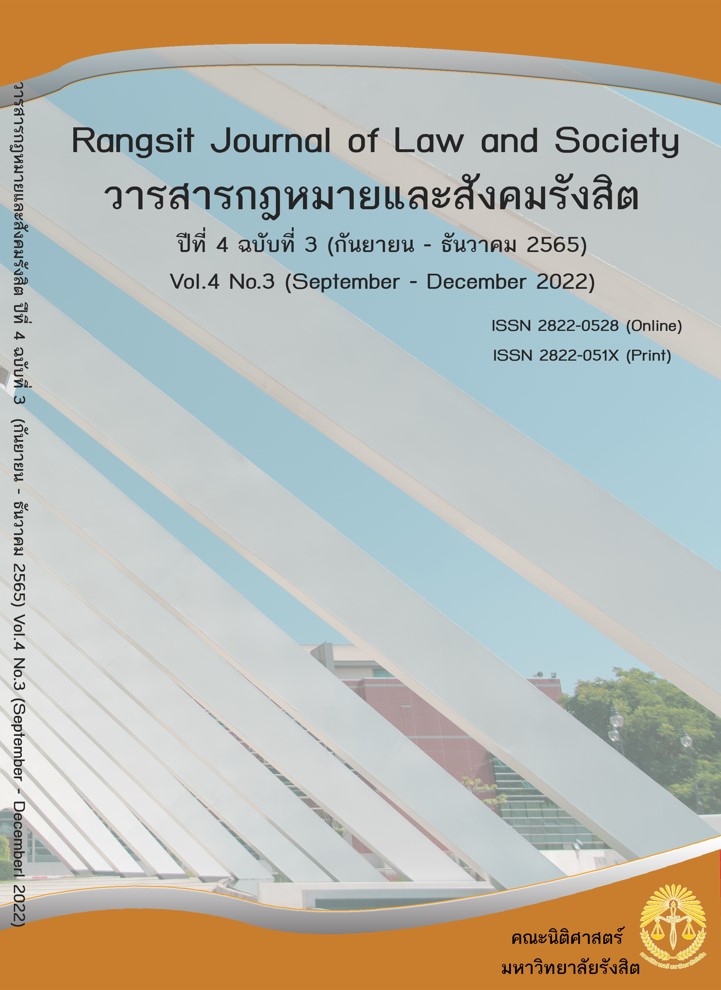พลวัตของกฎหมายการศึกษาขั้นพื้นฐานในสาธารณรัฐฟิลิปปินส์
Main Article Content
บทคัดย่อ
การศึกษาของสาธารณรัฐฟิลิปปินส์ได้รับอิทธิพลมาจากระบบการศึกษาของสหรัฐอเมริกา โดยเฉพาะการแบ่งระดับชั้นการศึกษา เนื่องจากสหรัฐอเมริกาได้เข้ามาปกครองหมู่เกาะฟิลิปปินส์อยู่ชั่วระยะเวลาหนึ่ง ทำให้กฎหมายการศึกษาของสาธารณรัฐฟิลิปปินส์ได้รับการพัฒนามาโดยลำดับ นับตั้งแต่มีการสถาปนาสาธารณรัฐขึ้น รัฐธรรมนูญแห่งสาธารณรัฐฟิลิปปินส์ทุกฉบับต่างให้การรับรองสิทธิของพลเมืองทางด้านการศึกษามาโดยตลอด พลเมืองฟิลิปปินส์มีสิทธิที่จะได้รับการศึกษาโดยไม่ต้องเสียค่าใช้จ่าย และรัฐธรรมนูญฉบับปัจจุบันยังมีบทบัญญัติกล่าวถึงการศึกษาภาคบังคับเป็นครั้งแรก โดยกำหนดให้ระดับประถมศึกษาเป็นการศึกษาภาคบังคับ อย่างไรก็ตาม สาธารณรัฐฟิลิปปินส์ประสบปัญหาทางด้านการศึกษาอย่างหนัก อันเนื่องมาจากการออกจากการเรียนกลางคันและผู้เรียนต่อระดับมัธยมศึกษาลดลง จึงนำไปสู่การตรารัฐบัญญัติแห่งสาธารณรัฐหมายเลข 10533 เพื่อปฎิรูปการศึกษา โดยมุ่งหวังเพิ่มศักยภาพของชาวฟิลิปปินส์ในตลาดแรงงานและคุณภาพชีวิตที่ดี ก่อให้เกิดการเปลี่ยนแปลงครั้งใหญ่ในระบบการศึกษา โดยเฉพาะอย่างยิ่งการเพิ่มระยะเวลาในการศึกษาภาคบังคับให้สูงถึง 13 ปี ครอบคลุมการศึกษาตั้งแต่ระดับอนุบาล ประถมศึกษา และมัธยมศึกษาทุกระดับ ทำให้ระยะเวลาในการศึกษาภาคบังคับและการเรียนโดยไม่ต้องเสียค่าใช้จ่ายสามารถประกบกันได้อย่างแนบสนิท
Article Details

อนุญาตภายใต้เงื่อนไข Creative Commons Attribution-NonCommercial-NoDerivatives 4.0 International License.
เอกสารอ้างอิง
คณะนิติศาสตร์ มหาวิทยาลัยอัสสัมชัญ. (2563). รายงานการศึกษาฉบับสมบูรณ์ ข้อมูลกฎหมายของประเทศฟิลิปปินส์และข้อกฎหมายที่เกี่ยวข้องกับสังคม วัฒนธรรม การเมือง และความมั่นคงของประเทศฟิลิปปินส์. เข้าถึงได้จาก https://lawforasean.krisdika.go.th/File/files/Philippine_Society%20(Thai).pdf
Harmon, C. P. (2017). How effective is compulsory schooling as a policy instrument? Retrieved from IZA World of Labor: https://wol.iza.org/articles/how-effective-is-compulsory-schooling-as-a-policy-instrument/long
K12 Academics. (n.d.). History of Education in the Philippines. Retrieved from https://www.k12academics.com/Education%20Worldwide/Education%20in%20the%20Philippines/history-education-philippines
Llego, M. A. (n.d.). Legal Bases of the Philippine Educational System. Teacherph. Retrieved from https://www.teacherph.com/legal-bases-of-philippine-educational-system/#1_Act_ No_74
Macha et al. (2018). Education in the Philippines. Retrieved from WENR World Education News+ Reviews: https://wenr.wes.org/2018/03/education-in-the-philippines
The Lawphil Project. (n.d.). 1987 Constitution of the Republic of the Philippines. Retrieved from https://lawphil.net/consti/cons1987.html
The World Bank. (2022). Compulsory education, duration (years). Retrieved from https://data.worldbank.org/indicator/SE.COM.DURS

